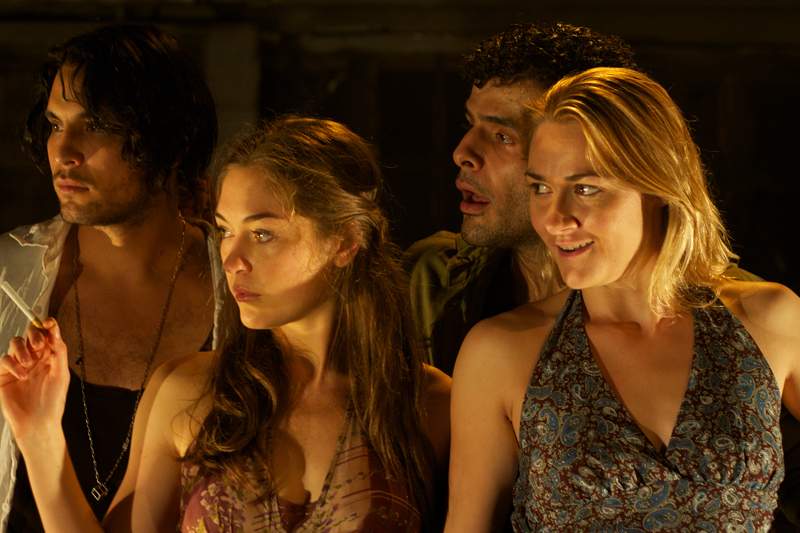I Only Came to Use the Phone
Discover a Gabriel Garcia Marquez short fiction as this ensemble tells the tale of a woman who, after her car breaks down, winds up in a dark and unexpected place.
Overview
If part of you loves the long-haul flights of fancy of Discworld and the dynastic intrigue of The Bold and the Beautiful, chances are, you also love some Gabriel Garcia Marquez. But the author of classic Latin American epics Love in the Time of Cholera and One Hundred Years of Solitude has a stash of lesser-known short fiction you may not have yet uncovered, and fortunately, director Netta Yashchin has dug out one fine example, I Only Came to Use the Phone, and brushed it up for a dashing public outing.
Set in the dying years of Franco's Spain, the story homes in on a woman, Maria (Annabelle Stephenson), who is left trying to phone her husband, shelter from the rain and anxiously light damp cigarettes at a rest stop after her car breaks down. Dejected and drawn to join the shrouded women on a passing bus, she winds up inadvertently dispatched to a psychiatric institution, where, of course, no-one believes she only came to use the phone. Her path to escape or acquiescence makes up a wry and touching tale that captures the feeling of dislocation and parallels the very real experience of arbitrary imprisonment found under Fascism.
Unusually, the story isn't adapted into a play; instead, the original text, rich and written in the third person, is delivered by an ensemble cast while they embody the characters to which the words pertain. The tack itself adds interest, and the result is surprisingly engaging. Stephensen, Julia Billington, David Hansen, Dorje Swallow, Fayssal Bazzi and (only occasionally appearing) Yashchin are all excellent and ultra-committed as they shift into their various roles, including those of inpatients, wardens, a magician and a house cat.
It's a world away from a mere dramatic reading, as the story is completely brought to life through the depth of characterisation and physicality, the rich dialogueishness brought to the text, and a set (by Charlotte Lane) that breathes the scungy romance of Catalonia, even in confinement. Most brilliantly, this approach has allowed Yaschin to add cheeky inflections of irony and heighten dark subtexts that aren't the characters' own or aren't present in a surface reading of the material.
Throw in the constant serenade of a live Spanish guitar (Damian Wright), and you've got a bewitching night of independent theatre.





